Vocabulary development Normal Community Worksheets for Ages 5-9
5 filtered results
-
From - To
Unlock your child’s potential with our Vocabulary Development Normal Community Worksheets designed for ages 5-9. These engaging resources help young learners explore essential vocabulary related to their community, enhancing their language skills in a fun and interactive way. Featuring colorful illustrations and age-appropriate activities, our worksheets focus on key concepts such as roles, places, and teamwork within their surroundings. Perfect for teachers and parents alike, these worksheets foster a love for learning while building essential communication skills necessary for social development. Encourage your child to express themselves confidently and understand the world around them through our thoughtfully created vocabulary worksheets!
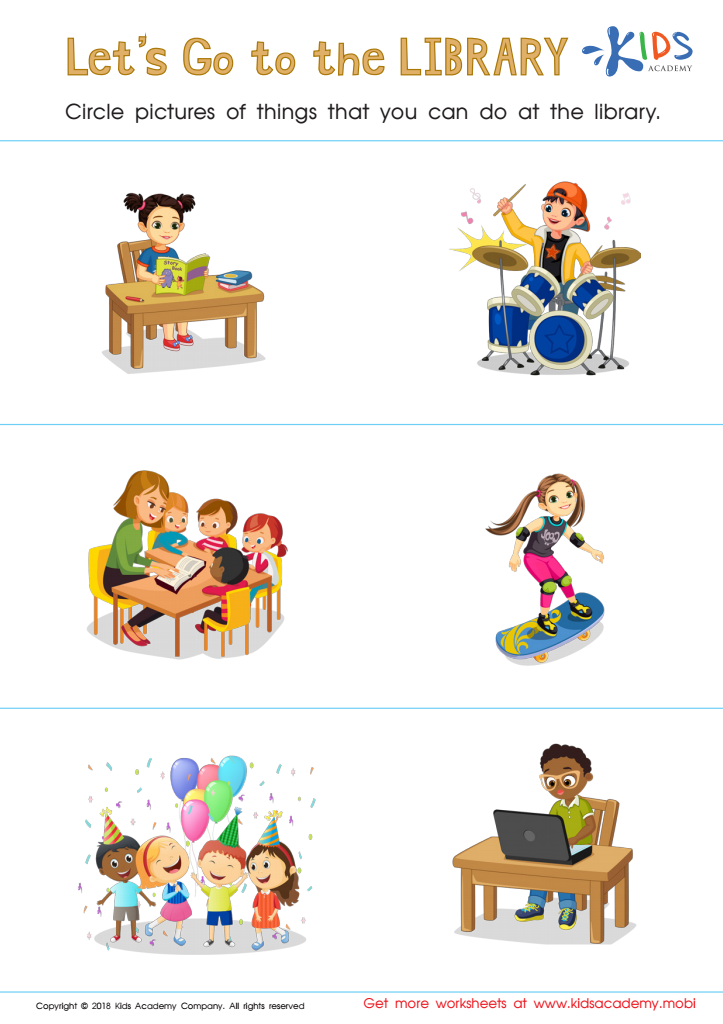

Let's Go to the Library! Worksheet
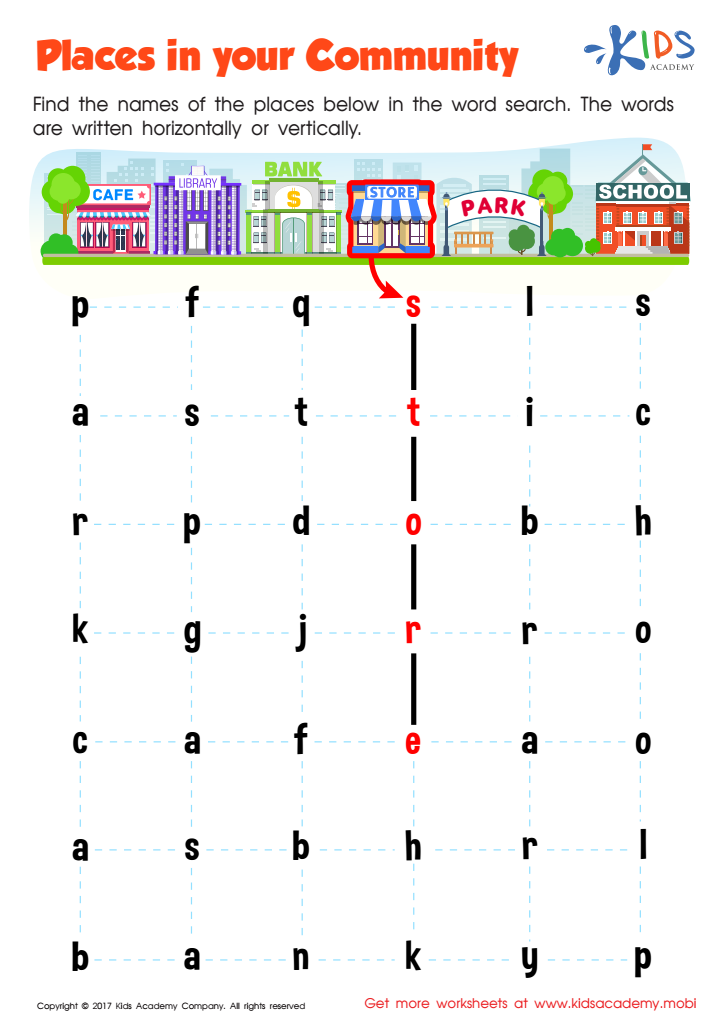

Places in Your Community Worksheet
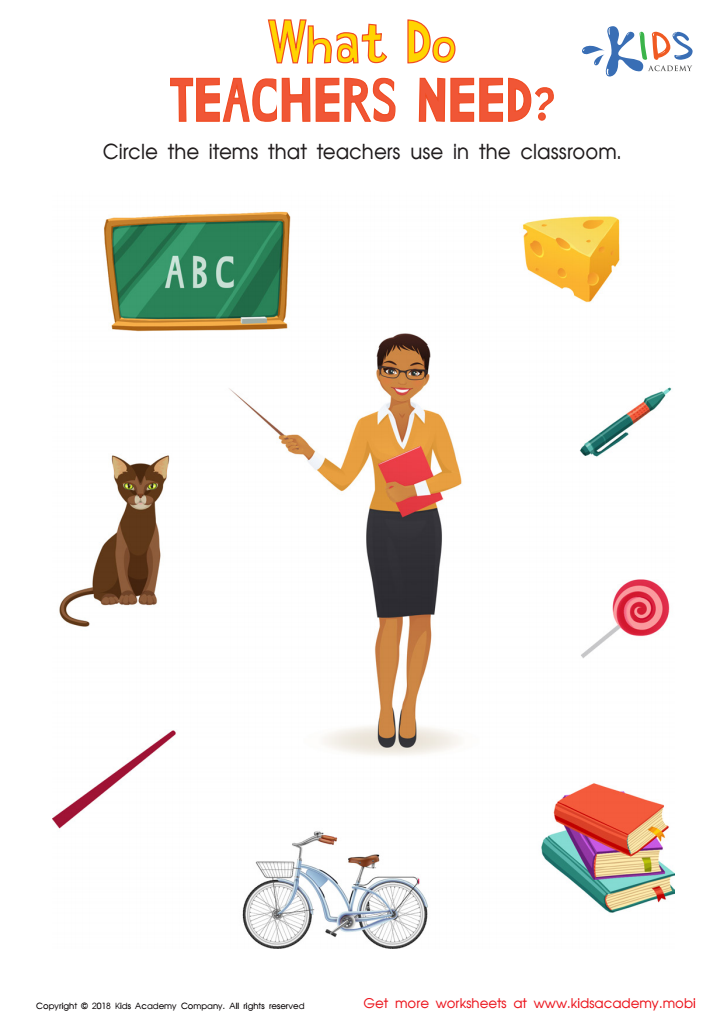

What Do Teachers Need Worksheet
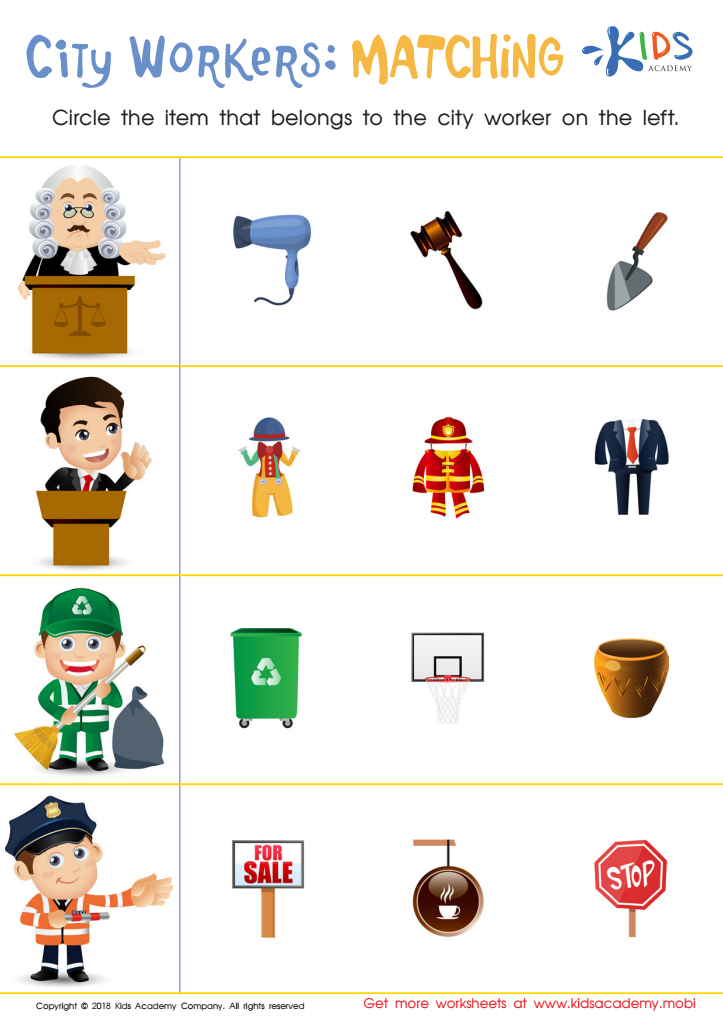

City Workers: Matching Worksheet
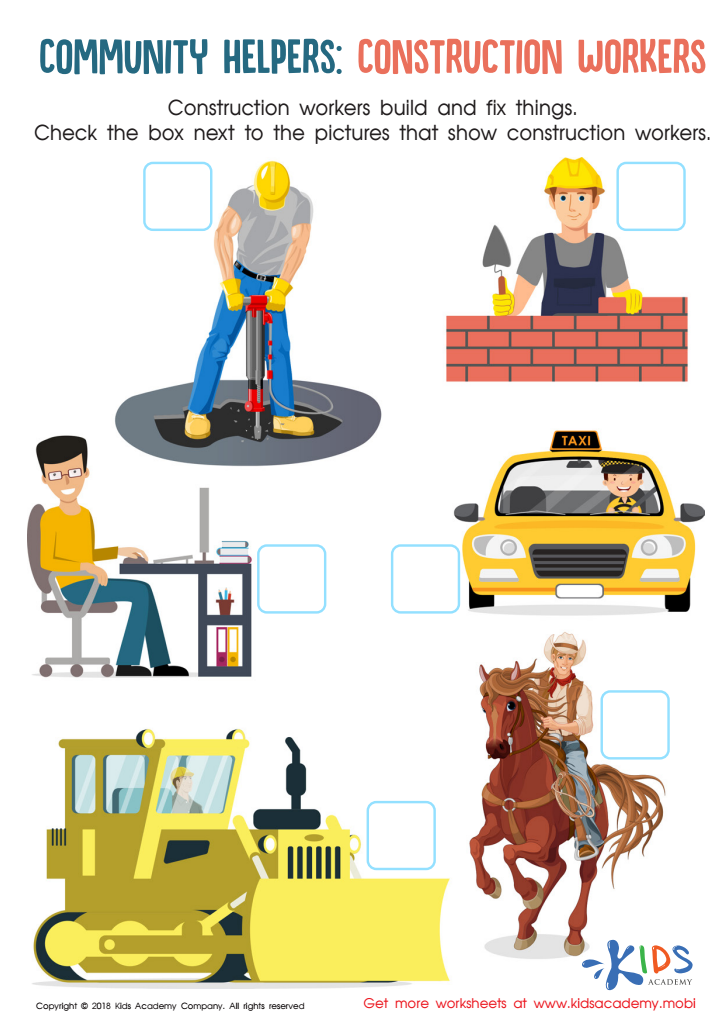

Construction Workers Community Helpers Worksheet
Parents and teachers should prioritize vocabulary development for children aged 5-9 because it lays the foundation for successful reading, writing, and overall communication skills. This age group is critical for language acquisition; children are not only expanding their existing vocabulary but also learning how to use words in context, which enhances comprehension.
Engaging in rich vocabulary experiences, such as reading together, conversational exchanges, and interactive play, can significantly boost children’s language skills. A robust vocabulary enhances cognitive abilities and supports problem-solving and critical thinking, which are vital for academic success across all subjects.
Moreover, vocabulary development fosters self-expression and confidence, allowing children to articulate their thoughts and feelings effectively. This can lead to improved social interactions, as well as emotional and behavioral outcomes. In a nurturing community environment, where parents and teachers collaborate to create enriching language experiences, children flourish.
Additionally, research shows that children with a strong vocabulary are more likely to excel in standardized tests and assessments later on. By investing in vocabulary development, parents and teachers equip children with essential tools for lifelong learning and success, making it an imperative focus during these formative years.

 Assign to My Students
Assign to My Students






















